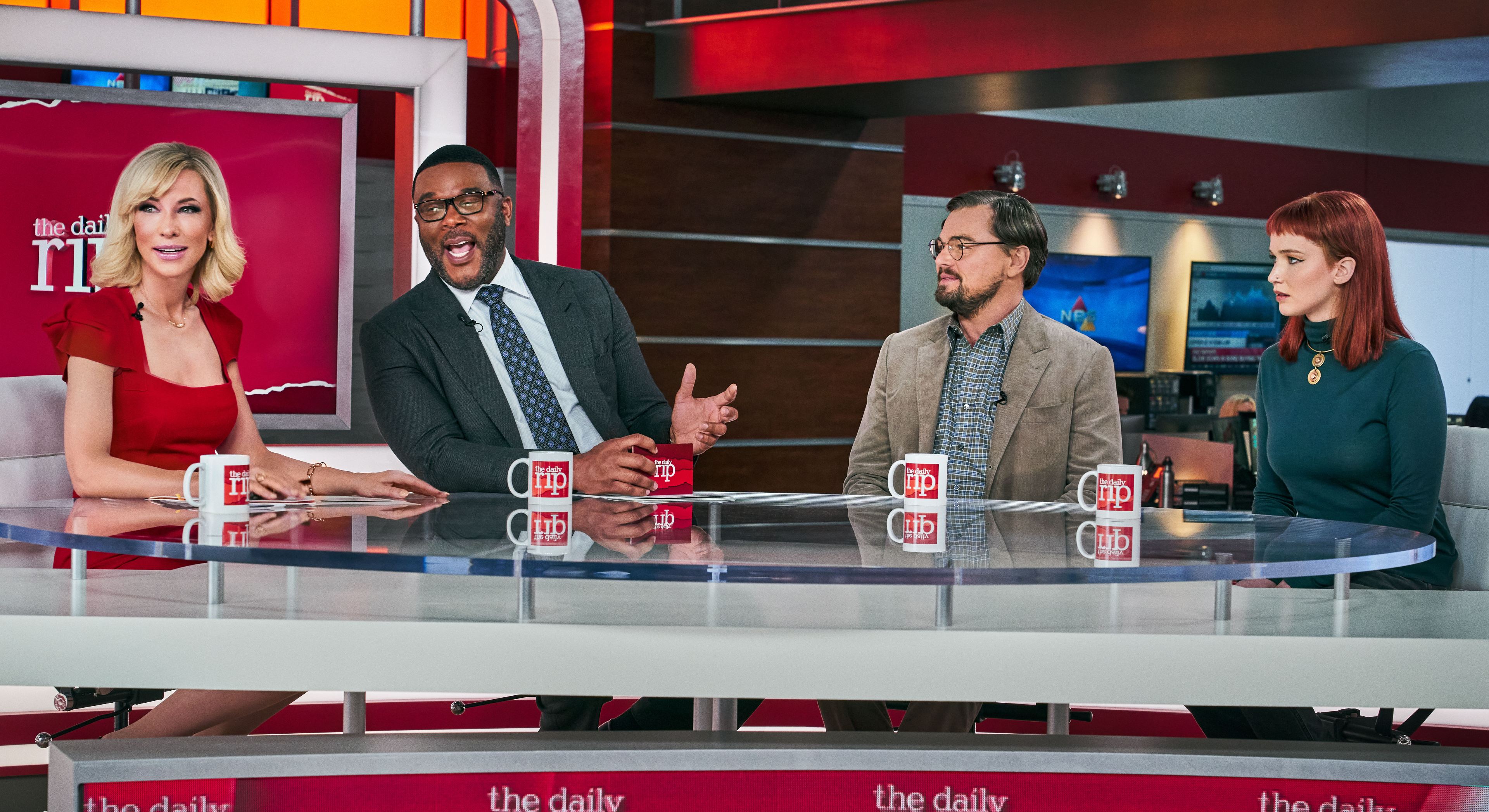A Survivor's Story: Breaking Down the Season 4 Finale of ‘Handmaid’s Tale’
The roaring emotional ride that was the season four finale sets June on a new path: more of a Survivor's Journey.


Netflix’s latest big-budget release Don’t Look Up has been building buzz in recent months with its chock-full-of-stars trailer. It seems that director Adam McKay might have been more concerned with cramming cameos than he was in this story, which, putting it mildly, was a bloated criticism of the rich and famous… delivered unto us by the rich and famous.

Don’t Look Up delves into what the world would look like if a deadly comet were to strike the earth, and only the most powerful and intelligent people in the world knew about it. The answer is, well, not good, because those people usually suck. Astronomers Dr. Randall Mindy (Leonardo DiCaprio) and Kate Dibiasky (Jennifer Lawrence) make this horrific discovery and immediately alert Madame President Meryl and her smug Chief of Staff (Jonah Hill), as well as the rest of the country to their impending doom- with no avail. Instead, they’re taken on a media circus tour where they must compete for audience attention. While they work with the government to formulate a plan to destroy the comet before it’s too late, they quickly learn that saving all of humanity isn’t the number one item on everyone’s to-do list.
My biggest qualm with this film is that I genuinely cannot tell if it was supposed to be funny. I can definitely tell that its intention was to be satirical- but even those elements were not pulled off successfully. This can be attributed to a complete lack of comedic chemistry between the characters or between any of the story elements. While the parallels of this science-fiction story to current events are topical, observation ≠ satire. Just because McKay can accurately predict that the first thing we might do in a doomsday crisis is make a meme about it- doesn’t mean that it’s an astute criticism, or that it’s necessarily funny. Satire is all about the delivery of your observations. The humour is found in the area where truth meets hyperbole. While Don’t Look Up had all of the ingredients, the way they were put together felt extremely forced.

The allegory of Don’t Look Up was so literal, and yet the unfolding of information was so sloppy that it made the watching experience very hard to enjoy. The plethora of characters were not used to their full advantage to convey any sort of emotional weight to accompany the messages of the film. Without those developmental arcs as a vehicle for theme, the condemnation of modern culture comes across as excruciatingly preachy and baseless. While I can’t complain about the actors’ performances, the characters themselves did not draw me in or make me care about their journey in any way. I understood the mirror this film was trying to hold up, but many narrative building blocks were just a little too off-the-mark to stabilize the story structure and make it the compelling reflection on society that it was aiming to become.
I could probably list on one hand the things that I did like about Don’t Look Up, so I would like to acknowledge the running gag from Lawrence’s character about being charged for snacks that were free, which takes the number one slot. I can also appreciate that the importance of differentiating business and science is heavily stressed. During this era of unregulated tech and data collection, science and well-being playing second-fiddle to power is absolutely a criticism I can get behind. While this theme is at the core of the film all along, it gets buried in an over-indulgent finger-wag.
/cdn.vox-cdn.com/uploads/chorus_image/image/70311546/DLU_20201204_02846_R.0.jpeg)
Don’t Look Up is a shallow commentary with a late-to-the-party reflection on our divided ideologies and misdirected passion for internet culture. While this film had a lot to say, the messaging was a misfire. If I had paid admission to watch this film, I would have been far more irked than I am now. But I watched it on Netflix, for free, Covid-riddled and nowhere to go- and it was still a waste of time.
This low Incluvie score is given because of a general lack of diversity amongst the main cast, the only exception being Rob Morgan, whose character takes a considerable backseat. Additionally, each female character aside from Jennifer Lawrence is portrayed as either wicked or unintelligent.

Related lists created by the same author
The roaring emotional ride that was the season four finale sets June on a new path: more of a Survivor's Journey.
Related diversity category
Make way for more Latine representation! Disney has released a toe-tapping musical trailer for "Encanto", which features more diversity than expected!
Related Movie / TV / List / Topic
Fiction doesn't have to be the model for how our real-life pandemic plays out. Here's how we can avoid the dangers shown in "Contagion."